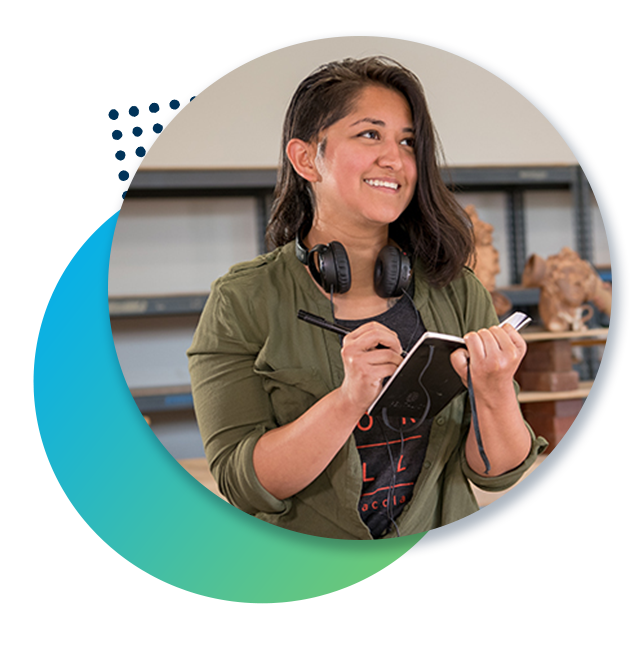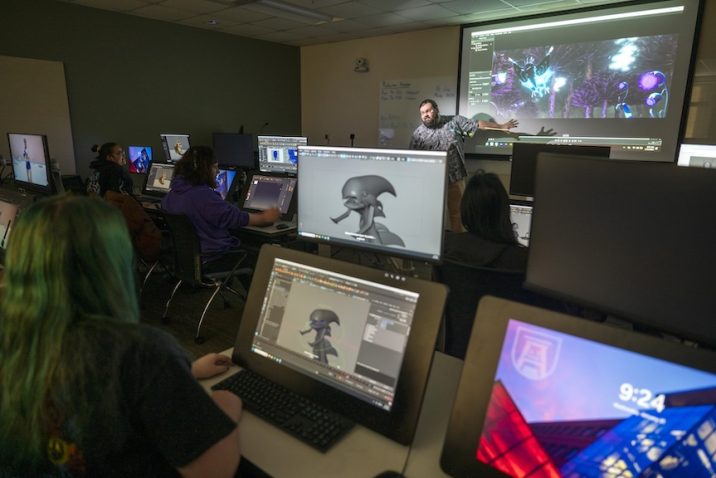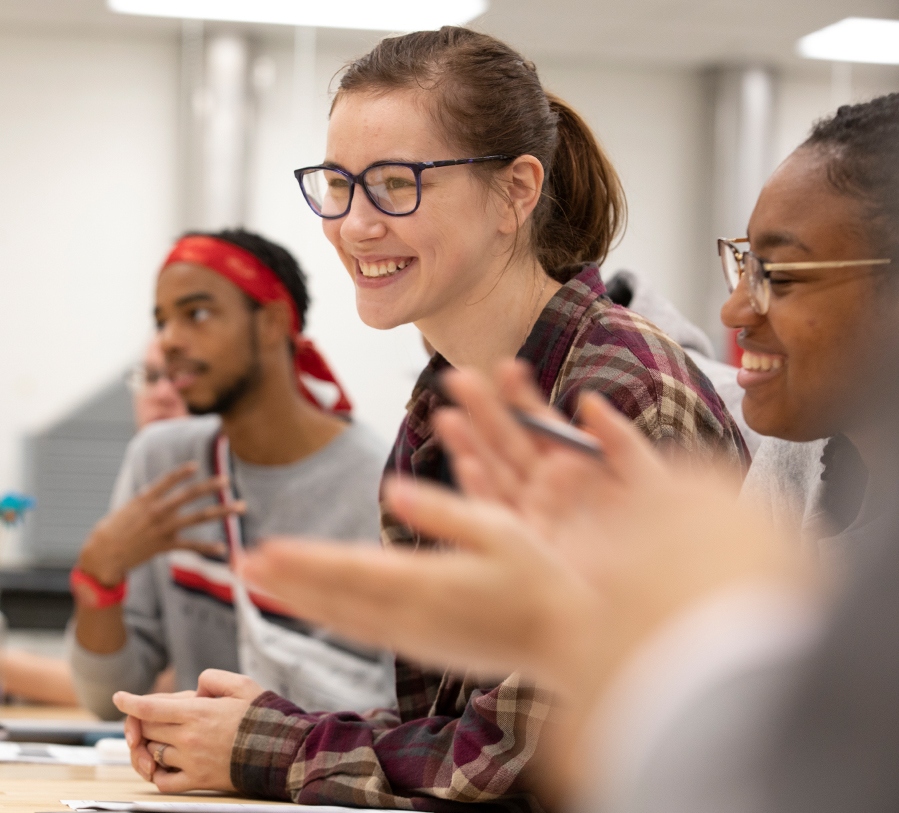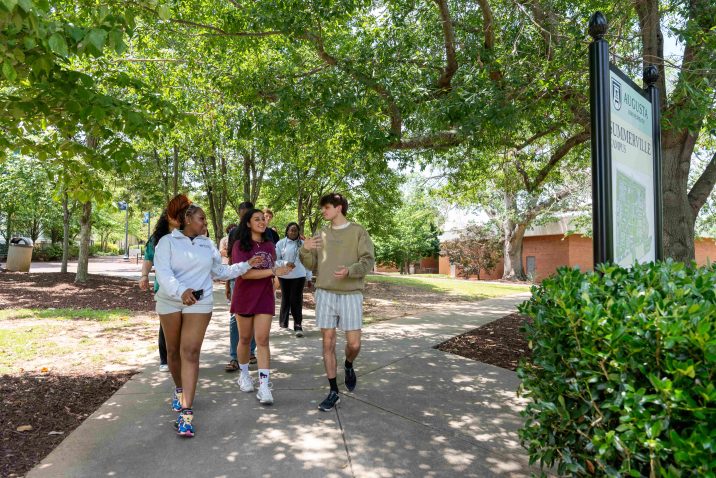World Languages
Are you interested in an immersive experience focused on a language and a culture
not your own? Would you like to use the knowledge gained from that experience to teach?
To serve others as a translator or interpreter?
This program from Pamplin College of Arts, Humanities, and Social Sciences’ Department of English & World Languages
prepares students for a variety of career pathways.
The World Languages program at Augusta University offers a unique experience — one
that gives you concentrations in French and Spanish as well as a concentration in
teaching.
World Languages is for you if you consider yourself
World Languages Program
Summerville Campus
What You'll Study
Coursework
French and Spanish concentrations provide students with opportunities to study literature and culture; hone conversation, composition and translation skills; and work closely with faculty on academic research. Those interested in teaching follow the P-12 Certification path, which helps them develop the knowledge they need in the classroom. Through language study, all students learn to write in a variety of modes, conduct independent and collaborative research, and improve their understanding of domestic and global cultures.
Focal Points
Concentrations
Bachelor of Arts in World Languages and a concentration in French
Bachelor of Arts in World Languages and a concentration in FrenchBachelor of Arts in World Languages and a concentration in Spanish
Bachelor of Arts in World Languages and a concentration in SpanishBachelor of Arts in World Languages and a concentration in French with P-12 Teacher Certification
Bachelor of Arts in World Languages and a concentration in French with P-12 Teacher CertificationBachelor of Arts in World Languages and a concentration in Spanish with a P-12 Teacher Certification
Bachelor of Arts in World Languages and a concentration in Spanish with a P-12 Teacher CertificationExperience-based Education
Outside the Classroom
Study abroad opportunities allow you to put your understanding of language and culture
into practice.
Student organizations and clubs provide the chance to share ideas and knowledge and
explore other cultures through personal connections and shared discussions. The World
Languages Hub also provides opportunities for language and cultural immersion in a
collaborative, technology-enriched setting.
Internships put your language skills and cultural understanding to the test in a real-world
environment.
Research & Innovation
Whether you’re an undergraduate or graduate student, you’ll have opportunities to create your own research projects or work with faculty to tackle some of the world’s most complex and pressing challenges.
Research Center
Pamplin College’s Center for Social Science Research involves students as active partners in research projects that assist local public and nonprofit agencies improve their effectiveness.
Student Publications
Student publications are an excellent way to find your voice and strengthen your portfolio, and Pamplin College has a wide range to get involved with.
Clubs & Organizations
Student clubs and organizations help you “plug in” to campus life in a way that can lead to meaningful connections, new interests and resume-enhancing experiences.



Interested in teaching?
Secondary Education certificate available
If you are interested in working with students in grades 6-12, you might consider a certificate in Secondary Education in addition to your degree. Teachers, school counselors, and other educational personnel must be certified by the Georgia Professional Standards Commission to teach in elementary, middle, or secondary public schools.
Augusta University offers an opportunity to complete your teaching certification while earning your degree within specific programs of study. Once students have completed their coursework and passed their certification, they can add secondary teaching education to their list of career opportunities.
Learn about secondary education certificatesYour Future
Career Options
World Languages graduates are equipped with the skills needed to work for publishers, schools, hospitals, the corporate sector, nonprofits and government organizations. The teacher certification pathways prepare students to teach language and culture in elementary, middle, and high schools.

Why Augusta?
Wide variety of in-demand concentrations prepares you for the career you want.
Dynamic campus with opportunities to interact in a multitude of collaborative ways.
State of the art facilities and technology provides the experience needed to step directly into your career.
The on-campus gallery and the department’s long history of hosting visiting artists and lecturers brings the greater art world to you.




